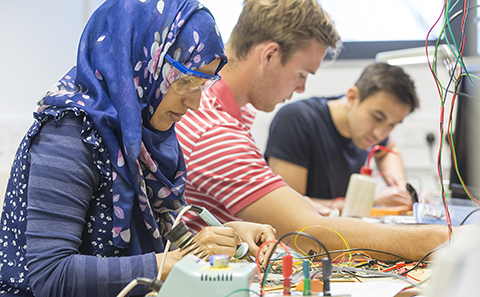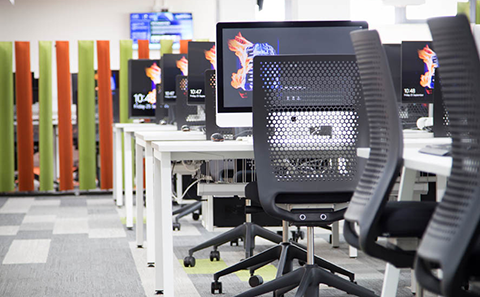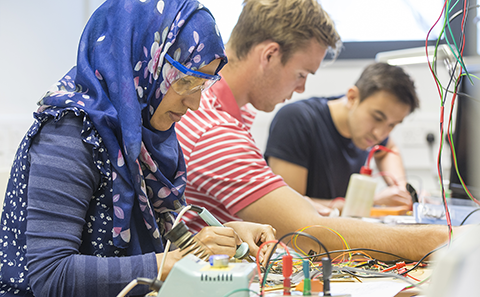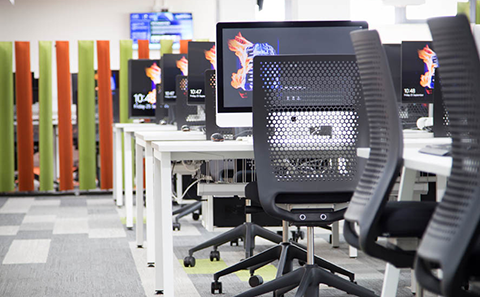
Try before you apply
If you love maths, technology or science, try our week-long summer school in electronics and computer science.

If you love maths, technology or science, try our week-long summer school in electronics and computer science.

ECS has excellent computing facilities, available to all ECS undergraduates. The labs also represent a unique social space, where students have the opportunity to work on group projects or study in the same space as their friends.

A*AA for MComp and AAA for BSc

If you love maths, technology or science, try our week-long summer school in electronics and computer science.

ECS has excellent computing facilities, available to all ECS undergraduates. The labs also represent a unique social space, where students have the opportunity to work on group projects or study in the same space as their friends.

A*AA for MEng and BSc, including mathematics